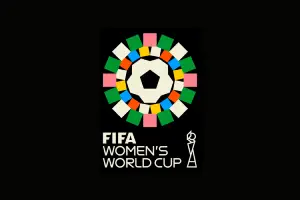Women’s World Cup Participants Face Taxation Challenges

The issue surrounding the reduced prize money awarded to participants in the Women’s World Cup has garnered significant attention and sparked widespread discussions, both within the realm of football and in the broader context of gender equality and taxation laws. This topic has brought to light a complex intersection of sports, finance, and social justice, with implications that extend well beyond the football pitch.
Unforeseen Taxation Challenges
With 32 teams from different nations competing on the world stage, the Women’s World Cup is a celebration of women’s football talent from across the globe. The tournament showcases the dedication, skill, and passion of female athletes who have worked tirelessly to reach this pinnacle of their sport. However, the excitement and sense of achievement have been overshadowed by unexpected financial setbacks resulting from taxation.
Australia, as the host nation, applied its tax regulations to the prize money awarded to the teams. While taxation on prize money is a common practice worldwide, the impact of these tax deductions on non-resident athletes has been profound. For some players, it has meant forfeiting a significant portion of their hard-earned winnings, with reductions amounting to as much as one-third of the prize money.
Impact on Athletes and Teams
This unanticipated financial blow has given rise to concerns about the potential long-term consequences. Teams and players worry that such tax deductions could deter future participation in international tournaments hosted by countries with similar tax laws. This issue goes beyond football and raises fundamental questions about fairness and gender equality in sports.
Women’s football has been gaining momentum and recognition in recent years, with a growing fan base and increased investment. To sustain this positive trajectory and advance gender equality in sports, it is crucial to ensure that female athletes are treated equitably, both in terms of opportunities and financial rewards. Addressing taxation challenges for international athletes is one essential step toward achieving that goal.
The Broader Gender Equality Issue
As discussions continue, the hope is that FIFA and the Australian authorities will respond proactively and constructively to the concerns raised by Women’s World Cup participants. Finding a fair and equitable solution is not only a matter of financial restitution but also a statement of commitment to the principles of equality and fairness in sports.
In the midst of this debate, it is important to acknowledge and celebrate the remarkable achievements of the women who participated in the tournament. Their dedication, skill, and resilience have inspired countless fans worldwide. The resolve shown by these athletes, both on and off the field, underscores the importance of addressing the taxation issue and ensuring that women’s football continues to thrive and serve as a beacon for gender equality in sports.
The world is watching as the discussions unfold, hoping for a resolution that upholds the values of fairness, equality, and respect for all athletes, regardless of their gender or nationality. The Women’s World Cup has always been a platform for showcasing the best of women’s football, and it is essential that this tradition continues with the utmost integrity and fairness.


































Leave your commentary